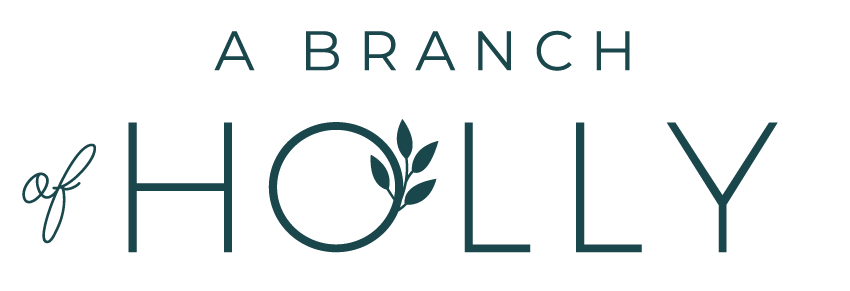HOW TO CREATE A SUCCESSFUL PRESENTATION IN THREE STEPS
Last month, I was in Lancaster speaking to students who were part of the Marketing Society. It was amazing to see the variety in their interests and the subjects they studied.
They were really looking forward to what I was going to speak to them about, which was personal branding. But they had more questions about job interviews – and because I’d been successful in my interviews, they wanted to pick my brain.
I was talking to them about the types of things they might be asked in an interview and when I said that it’s likely they'd have to do a presentation, their faces went blank.
They had absolutely no idea where to start with something like that.
And it’s scary. You’re asked to present on something you think you know a lot about, but when it comes to it, you start to doubt yourself and a vicious cycle starts.
But actually, creating a presentation isn't that difficult.
Why? Because there was a time when I’d never done one and for the job I’m in now, it was my presentation that really impressed the panel. Plus, I now enjoy presenting so much that public speaking is part of my personal brand.
In my personal experience, I know how likely it is that you’ll have to deliver a presentation for a job that you apply for. Luckily, I happen to like talking about careers, because I believe myself to be very successful in my own, plus I love what I do. So while I’m not actively applying for jobs, I’ve definitely been there and know exactly how to help you prepare while you’re job hunting.
So today, I want to share the three keys to creating a successful presentation plus my top tips on how to deliver it.
#1 | Be clear on the topic of what you’ve got to present about
It’s important to understand the question you’re being asked. What do I mean? Well, you need to make sure that the topic of the presentation is:
- Something you can explain
- Something you can describe the benefits of
- Something you know you can provide help with
- Something that you’d feel confident answering questions about
- One that you know about so you can tailor your answer to the question in a specific way to helps others understand it
You want to make sure you answer the question better than anyone else. The key is that you have to cover all bases and be as clear as possible. This means you want to include as much information as possible in your presentation with real-life examples. If your presentation doesn’t stand out from the other candidates, you’ll make your chances much harder when it comes to the interview.
The only problem is that you don’t know what the question is going to be!
So I’ll use one as an example.
Here’s what I had to prepare a presentation on for the Marketing Coordinator job I’m in now.
What would you seek to achieve in your first year to develop [company name]’s use of digital and social media as part of the marketing mix?
So clearly, there’s a few things I needed to have here:
- Knowledge of social media channels
- Knowledge of digital media
- Knowledge of how the company already uses digital and social
- Knowledge of how to improve their online presence
- Real-life examples of what’s worked for me
Two things are really important here: real-life examples and your knowledge of the company. I didn't want to come into the presentation saying “You really need to be on Facebook” when they've already got a Facebook page. Just like I wouldn't want to go in saying “You need to be on Snapchat” if I don’t have proof of the benefits. So when trying to figure out the bases you need to cover, consider:
- What the company already has
- What the company doesn’t have (and needs)
- How these things will benefit the company and their audience in the future, and what you’ll do to measure the impact
- What’s worked for you in the past that you can use and adapt
Think about it. What will give your presentation a unique advantage? What can you bring to it that other candidates won’t?
The simplest and most noticeable ways to make your presentation stand out from others is to (1) use your own case studies, (2) show you’ve done your research, and (3) combine those things together to show what you’d do for the company.
#2 | Choose how you’re going to present and what you’re going to include
When you’re deciding exactly how to go about creating your presentation, there are a few questions you can ask yourself:
- What different types of media will be the best way to share this information?
- What will have the biggest impression on my audience? (aka the panel)
- What am I comfortable developing and using?
- What do I have enough time to create with the tools I’ve currently got?
- What’s the best way for me to plan this so I don’t overthink it and just do it?
The last question is really important. You don’t want to overthink the process. You want to get every single thought down on paper so you can order it into some sort of format. But you also want to make sure you’re thinking outside of the box too.
Here’s a secret for you that you can take away from this and do with your next interview.
It’s easy to create a presentation on PowerPoint. That’s what a lot of people will do. But here’s how you stand out.
For my presentation, I created a PowerPoint to show on screen, but I also created a booklet for the panel. This included all the screenshots from the PowerPoint so they could see them up close along with some other extra examples for them.
This really worked, because not only did they have something to look at during the presentation to keep them up to speed, they also had something tangible to keep afterwards, so they could look back on it. That really creates a big impact and a lasting impression.
#3 | Make sure your presentation gives value
As you’re putting together your presentation, and when you’ve finished it, make sure you practice in the mirror, or with a trusted friend of family member. There are some key things you want to make sure you’ve covered in your presentation that will really add to the experience when you deliver it.
Think about some of your favourite classes, lectures, workshops or talks – how where they performed in terms of:
- Delivery?
- Organisation?
- Content?
- Voice?
- Enthusiasm?
Now think if someone was presenting to you – what would really disappoint you? My dad sits on interview panels all the time, listening to presentations, and he says what always underwhelms him is when the delivery is flat, the presentation doesn’t flow and they clearly haven’t done their research. He says it’s so obvious when people just haven’t prepared enough and that’s the biggest let down of all.
Your audience (the panel) will notice all of these things. Being a good presenter isn't just about being a good presenter. People can pick up so many skills from you delivering a presentation – like the fact you use your own initiative, you’re confident, you’re approachable, good to work with, professional, and so many more. You want to make sure you nail all those five points above in terms of performance and how you put your presentation together, so people become really impressed with you, share great feedback and want to hire you.
Remember what my presentation was about? I had to talk about what I’d do to improve the company’s use of digital and social media. Here (in bullet point form) was the flow of my presentation:
- How important digital & social media are
- Tracking website performance through Google Analytics
- Using my own website as an example and what to pay attention to
- The importance of email marketing
- Outline an email marketing strategy for the company, including how many emails would be sent out per month and how to track the impact
- The importance of SEO
- What the company want to rank #1 for
- Outline an SEO plan in terms of updating content, refreshing pages and optimising everything
- The importance of competitor analysis
- An example of what a competitor is doing and how we can improve upon that
- How to analyse competitors
- Outline how social media would benefit the company
- Go through the creation of a social media calendar (and give examples)
- Talk about optimal posting times and use my own account as an example of using a tool to find out when your audience is most active
- Go through scheduling posts and being as active as possible
- Then talk about some platforms individually (e.g. how including an image within a tweet means it’s 150% more likely to be shared)
- Outline competition ideas and how they would benefit the growth and engagement of the company’s social channels
- Finish with a brief outline of potential other social channels the company could get involved with
Yes, I know that your question might be completely different to this. And yes, I know that creating this whole thing is hard. But if you happen to have a presentation coming up and you’re looking for a step-by-step guide of who to do it, then come back to this post and get going!
Best of luck!
Have you ever had to deliver a presentation in your interview? What are some of your tips?

